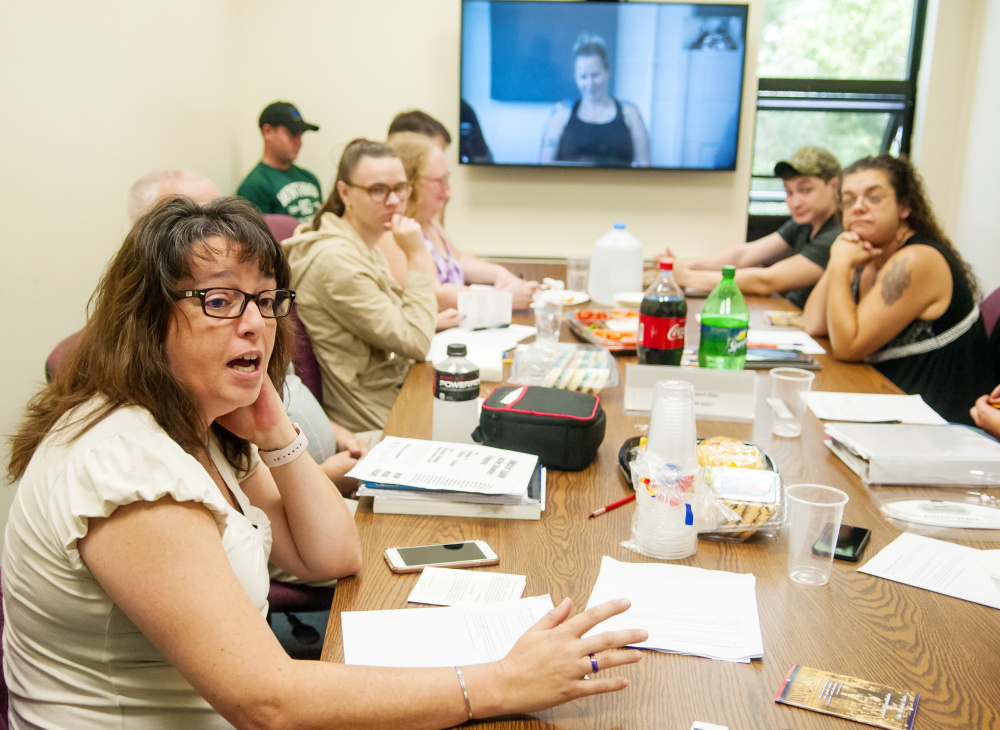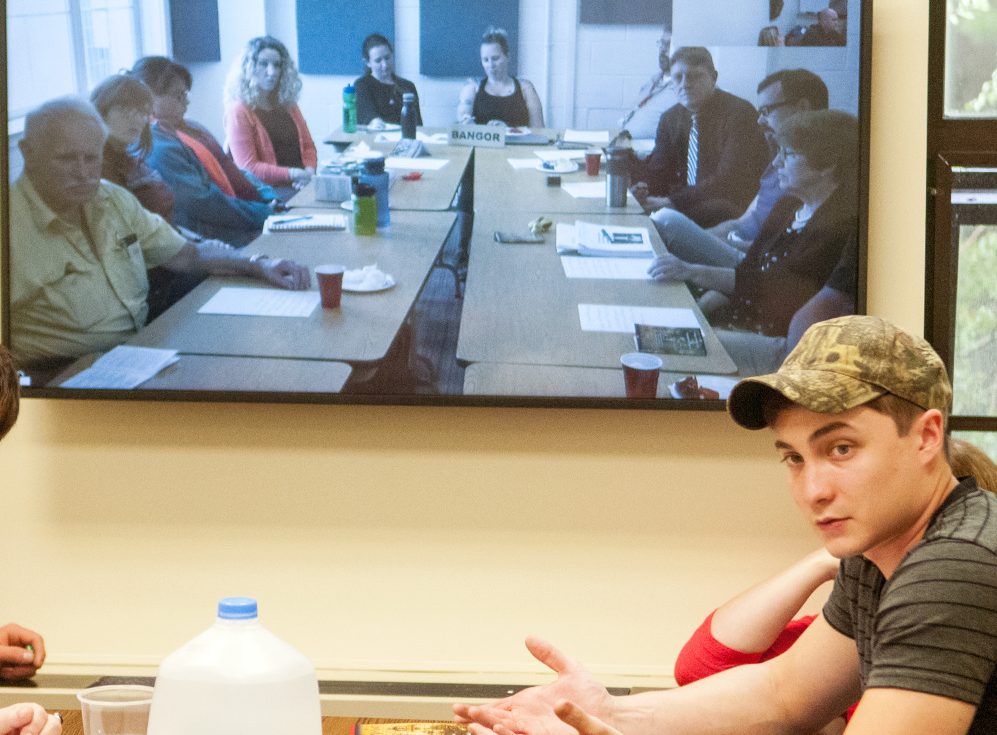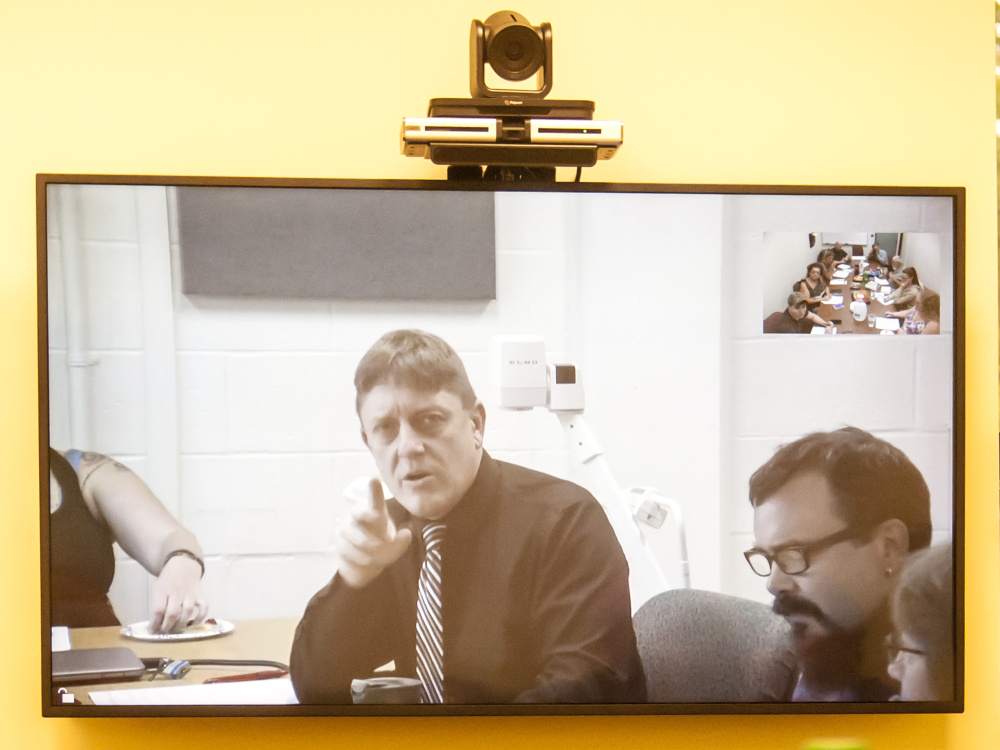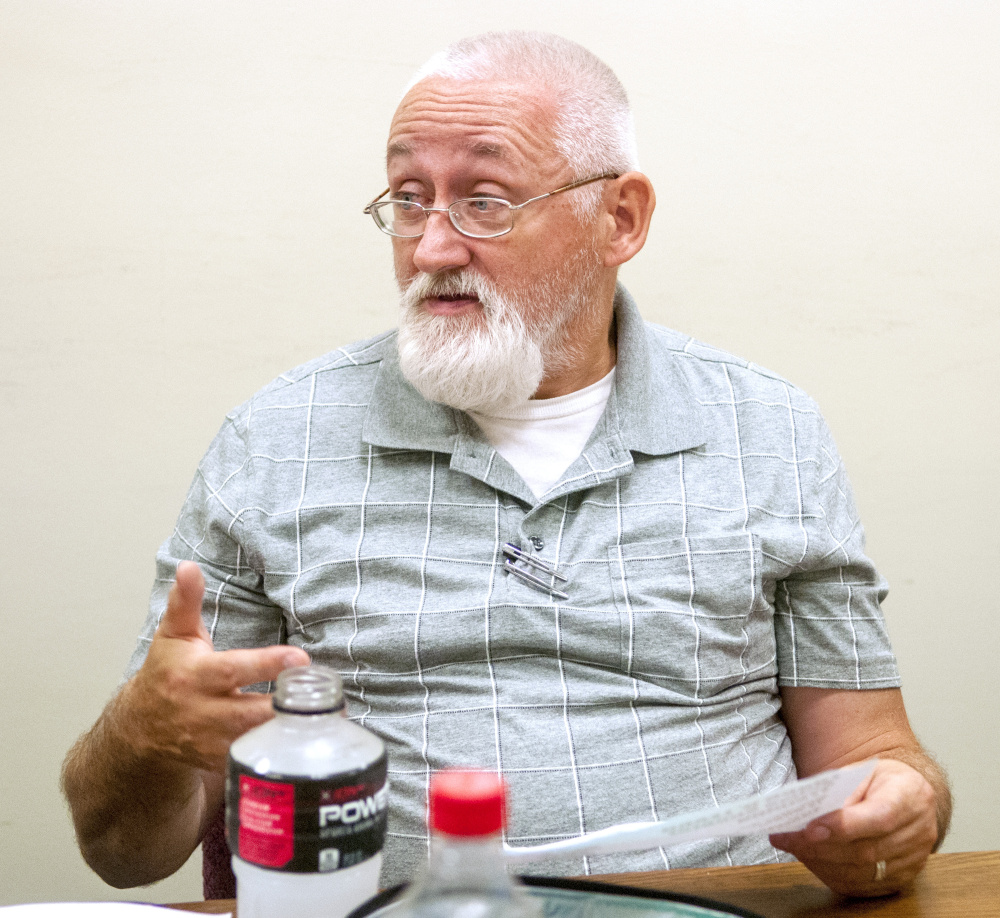AUGUSTA — The University of Maine at Augusta hosted a discussion Wednesday on the First Amendment as it related to the events in Charlottesville, Virginia, last month, including a white supremacist rally, counter protesters, violence and one death.
Assistant professors James Cook and Sharon McMahon Sawyer started by asking the question “What if Charlottesville came to Augusta?”
For about an hour, about 20 professors and students talked about what types of speech are protected, what constitutes a threat and what defines a reasonable person. The group was asked what they thought would happen if something like what occurred in Charlottesville happened in Augusta.
“What happened in Charlottesville was a group of people who came armed for war,” said professor Jim Davitt. “Are they creating a substantial risk of bodily harm just by their presence? Everything was in place for a full-scale riot.”
Cook asked if the chants from certain white supremacists in Charlottesville — “Jews will not replace us” and “You will not replace us” — can be considered threats or if those words are protected by the First Amendment.
“I don’t think their verbiage and language was enough evidence to say they didn’t have the right to assemble,” said Nicholas Montoya, 23, a criminal justice student. “You can’t prove anything happened because of their signs (or language).”
However, Wanda Gagne, 58, said those words, in her mind, threaten the eradication of a specific group, and thus constitute a criminal act and terrorist threat.
“That shouldn’t be a right, and we shouldn’t be allowing this to happen,” Gagne said.
At the beginning of the hour-long discussion — part of the school’s Constitution Week — McMahon Sawyer asked the group if they believed people have the right to say whatever they want, and while they all agreed that wasn’t true, there was a wide range of what kind of speech people thought should be protected.
A lot of the back-and-forth between people in Augusta and Bangor who were linked via video chat focused on threats and terrorizing and whether a threat can be considered a criminal act or if it’s protected speech.
“In our society today, there are a lot of threats being thrown out against minorities, people of color and women,” said sociology professor Katie Corlew. “Is it reasonable to be afraid when that happens or is that something that we have to accept is now a part of life?”
In Maine, the statute on aggravated reckless conduct passed in 2001 states a person is guilty of that crime if “the person with terroristic intent engages in conduct that in fact creates a substantial risk of serious bodily injury to another person.” Cook said the words “intent,” “in fact” and “risk” make the statute difficult to interpret and because there is not just one definition for terroristic intent, terrorism or terrorizing.
Time, place and manner of speech can be restricted. Yelling ‘fire’ in a crowded movie theater, while maybe a joke to the person yelling, can cause panic and fear in others, so that speech isn’t protected, Cook and McMahon Sawyer said.
Davitt said Maine’s statute is aimed at an individual doing something like that, but it’s different when there’s a large group, like those in Charlottesville, with a very specific philosophy.
During the discussion in Maine, the group agreed that there are various standards of when speech no longer should be protected, but it didn’t come to a consensus on what specific words and language and speech should be protected by the First Amendment.
“We are all reasonable people, and if we feel we’re being threatened, it should be taken seriously,” Gagne said. “Context is important.”
While the discussion was only about an hour and at times veered off topic, McMahon Sawyer said the event was a success because it brought together so many differing viewpoints to a topic everybody knows and talks about all the time, the First Amendment.
“It was the embodiment of the experience of Constitution Week,” Cook said.
Jason Pafundi — 621-5663
Twitter: @jasonpafundiKJ
Send questions/comments to the editors.








